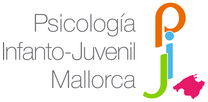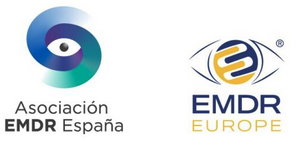
“I have an OCD”, “He changes his mind every day, he is very bipolar…”. Have you ever heard anything like that? We have all heard statements like these at some point or may even have said them. But do we really know what we are referring to when we use those labels? Are we aware of how this statement can affect the person we are referring to? The answer is usually no. So, we may be labelling someone who is simply scrupulous or very neat as OCD, or someone who may be experiencing an irritable mood because he/she is having a hard day as bipolar.
Consequences of the use of diagnostic labels at the professional level
When mental health professionals use diagnostic labels, we are giving a name to a series of signs and symptoms that a person suffers from. This labeling helps us to classify a person with a specific problem and facilitates our professional work in some ways: it allows us to study these psychopathologies with greater scientific rigor, facilitates the development of standardized assessment instruments and intervention protocols, simplifies the exchange of information between professionals, etc. On a personal level, this labelling helps in some cases to make the person more aware of his or her problems, to understand them in greater depth and to adhere better to the proposed treatment.
In order to carry out this labelling work, there are different manuals that make an extensive classification of diagnostic categories in mental health. Currently, the two most widely used manuals are the DSM – 5 (Diagnostic and Statistical Manual of Mental Disorders, APA) and the ICD – 11 (International Classification of Diseases, WHO). From the first editions of these manuals to the current ones, there have been many changes regarding the approach to the different categories and they have been defined more and more thoroughly thanks to the results obtained from scientific research.
Even so, these manuals are not exempt from criticism. Without going any further, the publication of the DSM-5 raised much controversy regarding the reliability and validity of some proposed diagnostic categories (Allsopp, Read, Corcoran, & Kinderman, 2019). The misuse of these diagnostic categories can lead us to psychopathologize problems of everyday life or to make an incorrect diagnosis, running the risk of proposing a type of intervention that is useless or even harmful to the person.
Consequences of the use of diagnostic labels at the social level.
If the use of these categories among professionals, who have more knowledge about how mental health works, is already risky, their use by the general population can also be dangerous. To begin with, most people who use labels such as OCD, bipolar or schizophrenia do not know exactly what they are referring to and rely on exceptional behaviours that have little to do with the complexity of such disorders. By doing so, we may be labelling someone as having a serious problem that does not really have. On the other hand, even if the person has such a problem, the excessive and exaggerated use of such labels can lead to the person being trapped within the diagnosis or being stigmatized by his or her environment. In both cases, we are reducing this person to a simple category, without considering his or her individual experience.
We may look at an example of being trapped inside the label: “I am X (we can write down any label here). I am like this, and I can’t change.” While it is true that when we begin to accept ourselves, we make good progress, we have to be careful because this radical “acceptance” prevents us from being aware that some aspects can be modulated and that it would be more adaptive for ourselves and for the people around us if we would do it. For example, I can accept that I am a High Sensitive Person (HSP) and that I feel emotions more intensely than my partner, but this does not mean that I cannot learn strategies to regulate my emotions more effectively. If I get stuck in the label, I may believe that I cannot or do not have to work through those difficulties when they arise, which can produce me a lot of suffering when my emotions get out of hand and/or a lot of discomfort on an interpersonal level because it is very difficult for the people around me to accept some of my behaviours.
Finally, it can also happen that, by labelling ourselves as having a problem that we do not have, we are unconsciously underestimating the importance of the problem, or we seem to make fun of it. For example, when I say that I have OCD because I like things to be tidy, I am not considering the discomfort that a person who really suffers from this disorder may feel when he or she hears me make that statement. We would not say in front of a blind person that I am blind because I cannot see a sign well from a distance.

Keys to NOT misusing diagnostic labels:
- Do not “diagnose” the people around you or yourself. Leave that task to mental health professionals, who will do it if they consider it necessary and they will do it having knowledge about the subject and more rigorously. Labelling a person with this kind of problems (whether it is true or not) can creates a lot of suffering. On the other hand, labelling ourselves will not always be necessary and can cause us to get stuck in the diagnosis, as explained above. More than naming the problem, what interests us the most is to describe it and to know what we should do to feel better about ourselves.
- Change the verb “to be” to the verb “to have”. The simple use of “is” versus “has” is revealing of how we reduce the person to his or her disorder, as if there was nothing beyond it. Instead of saying “Mary is depressive,” you can say “Mary has depression.”
- Do not make fun of people who have a psychopathological diagnosis. Such a diagnosis always involves great suffering or interference in the person’s life.
- Do not believe everything that is said in the news or the stories you hear. “He killed a person, but of course, he was schizophrenic” or “John has schizophrenia, it’s dangerous to be left alone with him.” It may happen that a person with a psychological disorder ends up committing a crime, but the truth is that it happens much less frequently than we are led to believe by the biases of the media or our stereotypes. People with no apparent psychological problem commit criminal acts daily and we do not be afraid of everyone indiscriminately, do we?
- If you have received a diagnosis, do not give up. While it is true that a very important is accepting what is happening to you, it is also important that you get involved in making the adjustments that will allow you to live your life in a more satisfying way.
- If you have received a diagnosis, you can use it to your advantage, to know yourself better and to know what action plan will help you to overcome the difficulties.
- And finally, remember that the problem you are suffering from is a part of you, but it does not define you as a person. For example, you are not bipolar, you are a person who has a bipolar disorder, with your own way of thinking, feeling and acting, and with your own life experiences, which may be very different from those of another person who also suffers from the same disorder. Remember that you are not your diagnosis.
References:
Allsopp, K., Read, J., Corcoran, R., & Kinderman, P. (2019). Heterogeneity in psychiatric diagnostic classification. Psychiatry Research, 279, 15 – 22.
American Psychiatric Association (2013). Diagnostic and statistical manual of mental disorders (5th ed.). Arlington, VA: Author.
World Health Organization. (2019). International statistical classification of diseases and related health problems (11th ed.).
Aina Fiol Veny
Psychologist Col. Nº B-02615








